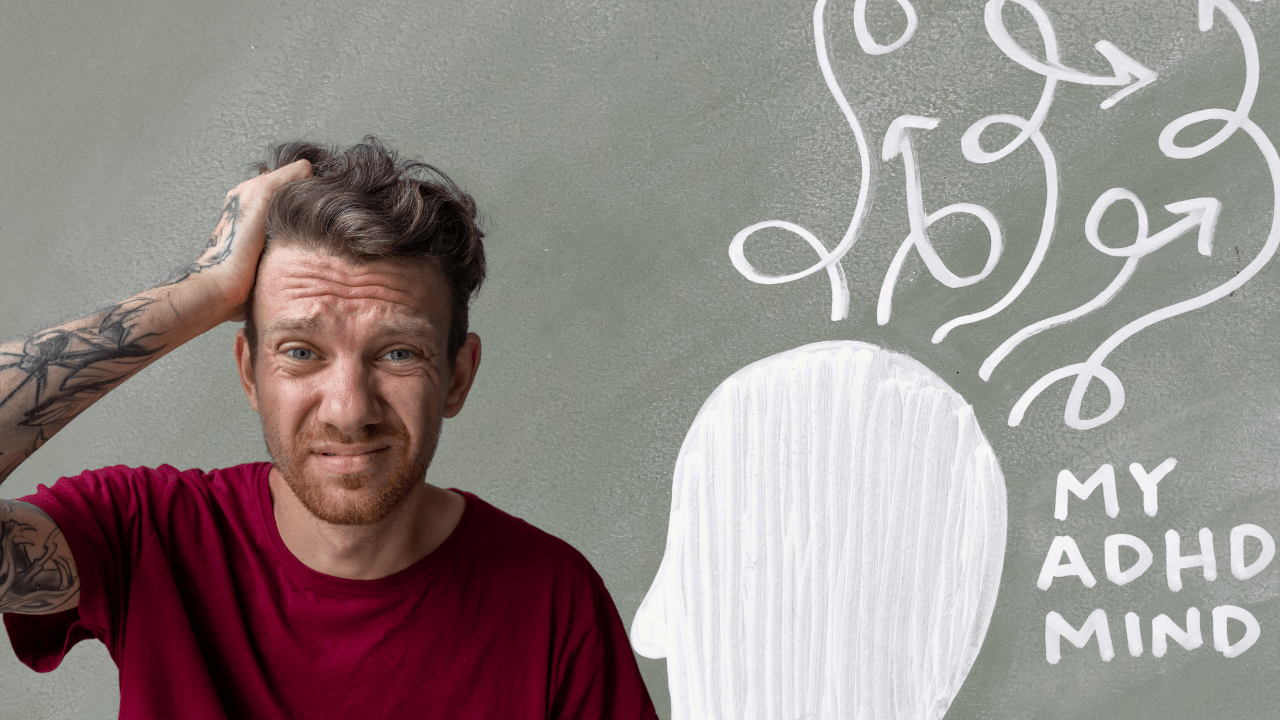Understanding and Managing Adult ADHD
Struggling with Adult ADHD?
Feeling overwhelmed, disorganized, or constantly on edge? You may not be alone.
Chart your path to success and take control of your ADHD.
Beyond Fidgety and Forgetful
Millions of adults worldwide struggle with ADHD, often facing challenges with focus, time management, and emotional regulation.
Adult ADHD (Attention Deficit Hyperactivity Disorder) is often misunderstood. While the stereotypical image might be a child bouncing off the walls, millions of Australians grapple with this condition in their adult lives.
The Prevalence of Adult ADHD
Statistics suggest that around 2.5% of Australian adults are diagnosed with ADHD. However, many more might go undiagnosed due to a lack of awareness or the misconception that ADHD is a childhood disorder.
Living with Adult ADHD
- Adults with ADHD experience a range of symptoms that can significantly impact their daily lives. These include:
- Inattention: Difficulty focusing, staying on task, and easily getting distracted by external stimuli.
- Hyperactivity: Restlessness, fidgeting, and an inability to sit still for extended periods.
- Impulsivity: Acting without thinking, making rash decisions, and interrupting conversations.
- Organization difficulties: Challenges with time management, planning, and keeping track of belongings.
- Emotional dysregulation: Difficulty managing emotions, leading to frustration, outbursts, or mood swings.
Ritalin In ADHD
- Drugs such methylphenidate and its associate cousins used for ADHD primarily works by:
- Blocking the reuptake of dopamine and norepinephrine: This means it prevents these neurotransmitters from being reabsorbed by the nerve cells after they’ve been released.
- Increasing their availability: By blocking reuptake, Ritalin allows dopamine and norepinephrine to linger in the synaptic cleft (the space between nerve cells) for a longer duration. This increased availability allows for more effective communication between neurons.
Medications like Ritalin (methylphenidate) is a central nervous system stimulant work by increasing dopamine and norepinephrine levels in the brain. These neurotransmitters play a crucial role in focus, attention, and impulse control.
Impact of neurotransmitters in adult ADHD
In ADHD, there’s often an imbalance of dopamine and noradrenaline predominantly. All neurotransmitters work in unison with each other, much like a finely tuned orchestra.
Dopamine plays a crucial role in focus, motivation, reward processing, and attention.
Noradrenaline is involved in alertness, concentration, and regulating impulses
GABA is associated with impulsivity and hyperactivity. The brain struggles to regulate its activity, leading to difficulty with focus and impulse control.
Serotonin contributes to inattention and emotional dysregulation in ADHD.
Testing Neurotransmitters
This simple urine test provides a personalized approach to help identify neurotransmitter imbalances and tailor natural interventions for the ADHD sufferer.
Educational Webinar
Understanding and Managing Adult ADHD
Chart your path to success and take control of your ADHD. Feel empowered and unlock your full potential with natural strategies provided in this webinar.
In this webinar, you will learn:
➡ Understand the neuro-divergent and core features of the adult ADHD brain
➡ How ADHD presents in adults and why it goes undiagnosed or misunderstood
➡ A guide to current medical treatments for ADHD
➡ “Putting the fire out” for a calmer mind with neurotransmitter balance
➡ Natural clinical solutions alongside conventional medications




